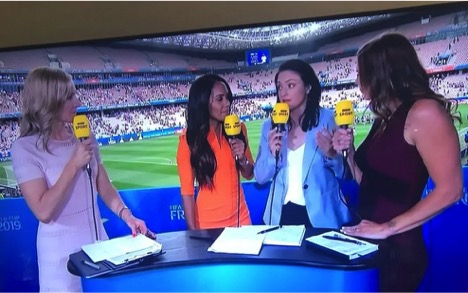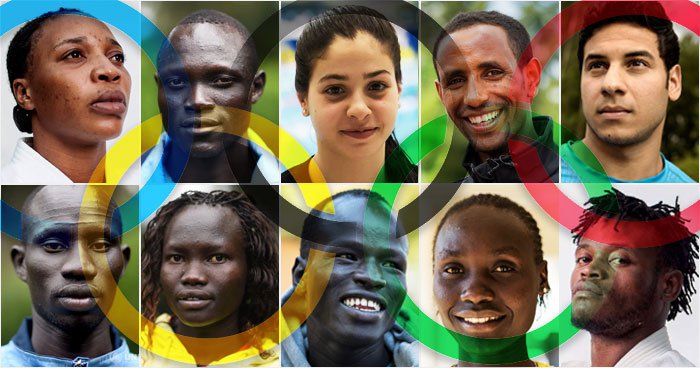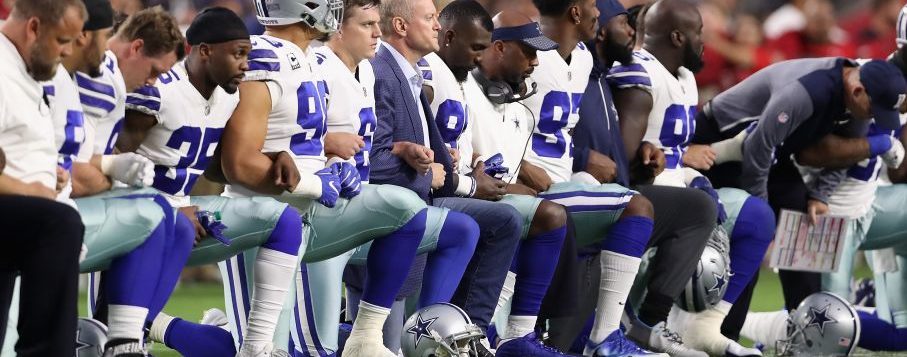Sexism in women’s football: The controversy behind an all-female panel
The opening game for the Women’s world cup revealed a horror show, something unheard of in sport today. Women, four to be exact, in positions…
The opening game for the Women’s world cup revealed a horror show, something unheard of in sport today. Women, four to be exact, in positions of significance usually occupied by males. Pure anarchy ensued as host Gabby Logan joined by Alex Scott, Gemma Fay and Hope Solo delivered competent and professional coverage, without the aid of Men. Mutiny I tell you.
Satire aside, the uproar which occurred over social media raises an interesting discussion. Was it fair to have an all-female cast? Fair being the incorporation of diverse groups in order to be representative of everyone. If tested against this broad definition, then it would fail as males were not included. But why does this matter? In the current climate of social justice and equality politics, it has been emphasised that everyone deserves the same opportunities based on equal moral worth as humans. In equalities view, men have just as much right to be there although it is a woman’s sporting event. Additionally, it has been argued that this exclusion is hypocritical to the whole concept of Women’s equality.
The issue with equality politics is the fact that it does not change ideologies, instead it creates quotas. Individuals feel as though ‘throwing in’ a woman, or a person of colour solves things. Well it doesn’t it, and companies follow suit to avoid discrimination allegations. If real change is to be made, ideologies need to be shifted. For example, if equality is necessary at all times then by that logic a disabled person should have also been on the panel in addition to a transgender person. Afterall, aren’t they social groups which deserve to be represented?
A feminist’s view may have an entirely different perspective. For a long time, Women have believed to have been oppressed socially, economically and politically by the influence of patriarchy. A pervasive ideology which even led to the FA banning women’s football from being played in member clubs’ grounds from 1921 to 1971. In this view, women should be afforded the right to ‘safe spaces’, where they can showcase their own abilities free from the influence of men. In a world dominated by men, a panel of four women should not be such a disturbance. Funnily enough, Men’s football continues to be dominated by majority male casts without objection. This raises a point as to why everything women do is highlighted. Perhaps there are insecurities that accumulate with the loss of power when women decide to build their own brands and social structures.

Majority Male match of the day pundits.
If this view was to be taken from a strict meritocracy, that is the rule by merit or superior skills. Then this panel may have also been viewed as fair as individuals were selected based on their knowledge of the game. The main host was backed by three other individuals, one retired and two other active players. In this view they were entitled to be there as they were experienced in the area of women’s football. If it were the case that four random presenters who had no previous knowledge or interest were selected, then that would be a much more substantial basis to a claim of villainy.
Overall what can be learnt from this is that context is very useful in relation to why things are the way they are. In this new era of outrage, what can temper this is sensible reasoning. In this case reason dictates that it is a women’s event, therefore female players and a renown female pundit are likely to have a bit more experience and therefore stake in how it is presented. There should be less outrage for the sake of it, but rather education.
Writer: Temi Adedeji
Disclaimer: The views, opinions and positions expressed by the authors and those providing comments, opinions on this website are theirs alone, and do not necessarily reflect the views, opinions or positions of M-Lifestyle and their affiliates. M-Lifestyle does not claim ownership of any images used, unless otherwise specified.
![]()






